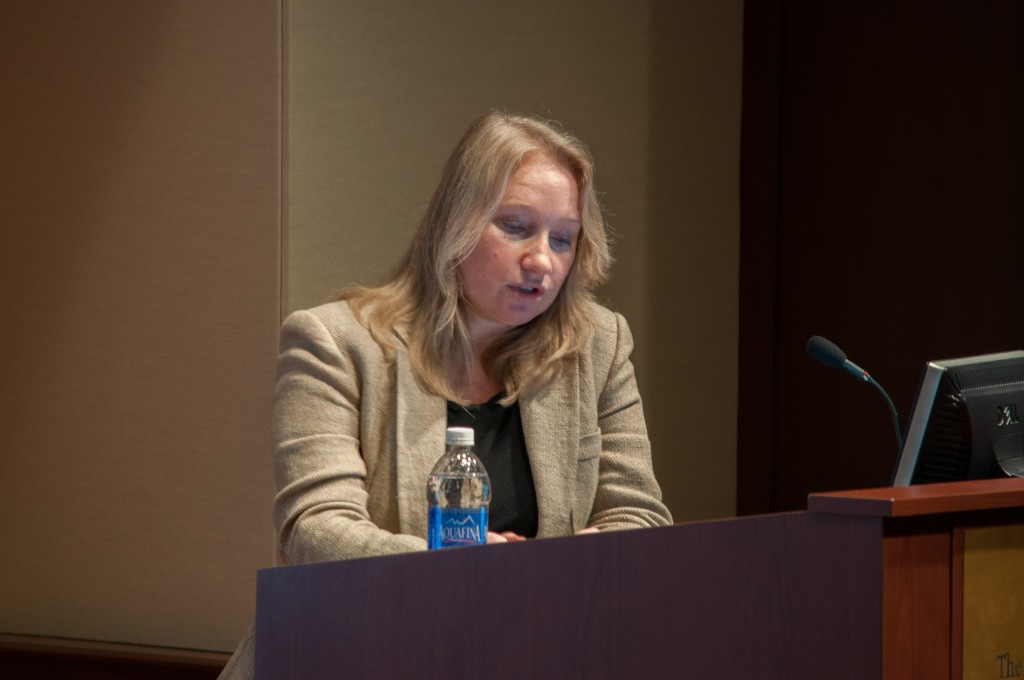With the recent mass arrest of hundreds in Russia, which included two members of the feminist punk band Pussy Riot, global feminist and LGBTQ issues were addressed at the College on Wednesday, Feb. 26, in the Library Auditorium.

Irina Aristarkhova, the associate professor of arts and design, history of art and women’s studies at the University of Michigan, spoke on the Pussy Riot phenomenon and shared her insight on the civil rights protests taking place in her homeland.
At the university, the women’s studies program likes to teach what Aristarkhova called “active distancing,” which aims to leave students to make up their own minds about feminism by teaching them multiple truths — not just one ultimate truth.
Following the recent events in Russia, including continued “repression of the freedom of expression,” as well as the signing of legislation against homosexuality by President Vladimir Putin, students have a lot to digest.
Pussy Riot has been hailed in the Western Hemisphere for their music videos showcasing real footage from protest rallies — most recently in Sochi during the Olympics — where they were whipped by several people from a variety of militaristic communities known as the Cossacks.
At home, they are under constant and extreme criticism, being called sell-outs, fake artists and fake feminists.
she also shared what the older generation had to say about the changes taking place. She called her mother in Russia one day and asked if she and her friends talk about Pussy Riot.
“We talk about it all the time,” her mother said. “We all agree that they are very bad mothers.”
Adding to the animosity between the old and new generations, Aristarkhova has overheard members of the Orthodox Church call the band “sinners that have to pay.”
While talking to her mother again, Aristarkhova brought up the topic of homosexuality.
“Why don’t they keep it to themselves?” her mother asked her.
With everything she has studied and believes in, Aristarkhova could not keep these questions to herself, regardless of the answer.
“These cannot become taboo subjects,” she said. “One cannot hope to always be safe.”
Eventually, her mother had a change of heart when she watched anti-gay activists on the television, describing them as violent and rude.
Aristarkhova went on to define the significant historical changes that have taken place with women’s roles in everyday life.
“Everyone must show their loyalty,” she said. “Before, quiet meant approval. Now, keeping quiet isn’t enough. Quiet can mean disapproval. Now (women) must be openly approving.”
The large turnout suggested that the audience seemed to be intrigued in the subject.
As a sophomore history major, Amanda Mastronardi enjoyed seeing aspects of her Soviet Union class play out in modern Russian issues such as feminism.
“It was really amazing to realize that people in Russia right now are so devoted to equality and standing up for freedom that they’re willing to risk their personal safety to fight this cause,” Mastronardi said.
But women, specifically, are standing up.
“The post-Soviet woman demands freedom in the streets and in the church,” Aristarkhova said of the ever-changing cultural and political landscape. For that ultimate goal, “she risks her life.”






